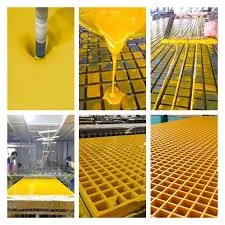
-
 Afrikaans
Afrikaans -
 Albanian
Albanian -
 Amharic
Amharic -
 Arabic
Arabic -
 Armenian
Armenian -
 Azerbaijani
Azerbaijani -
 Basque
Basque -
 Belarusian
Belarusian -
 Bengali
Bengali -
 Bosnian
Bosnian -
 Bulgarian
Bulgarian -
 Catalan
Catalan -
 Cebuano
Cebuano -
 China
China -
 China (Taiwan)
China (Taiwan) -
 Corsican
Corsican -
 Croatian
Croatian -
 Czech
Czech -
 Danish
Danish -
 Dutch
Dutch -
 English
English -
 Esperanto
Esperanto -
 Estonian
Estonian -
 Finnish
Finnish -
 French
French -
 Frisian
Frisian -
 Galician
Galician -
 Georgian
Georgian -
 German
German -
 Greek
Greek -
 Gujarati
Gujarati -
 Haitian Creole
Haitian Creole -
 hausa
hausa -
 hawaiian
hawaiian -
 Hebrew
Hebrew -
 Hindi
Hindi -
 Miao
Miao -
 Hungarian
Hungarian -
 Icelandic
Icelandic -
 igbo
igbo -
 Indonesian
Indonesian -
 irish
irish -
 Italian
Italian -
 Japanese
Japanese -
 Javanese
Javanese -
 Kannada
Kannada -
 kazakh
kazakh -
 Khmer
Khmer -
 Rwandese
Rwandese -
 Korean
Korean -
 Kurdish
Kurdish -
 Kyrgyz
Kyrgyz -
 Lao
Lao -
 Latin
Latin -
 Latvian
Latvian -
 Lithuanian
Lithuanian -
 Luxembourgish
Luxembourgish -
 Macedonian
Macedonian -
 Malgashi
Malgashi -
 Malay
Malay -
 Malayalam
Malayalam -
 Maltese
Maltese -
 Maori
Maori -
 Marathi
Marathi -
 Mongolian
Mongolian -
 Myanmar
Myanmar -
 Nepali
Nepali -
 Norwegian
Norwegian -
 Norwegian
Norwegian -
 Occitan
Occitan -
 Pashto
Pashto -
 Persian
Persian -
 Polish
Polish -
 Portuguese
Portuguese -
 Punjabi
Punjabi -
 Romanian
Romanian -
 Russian
Russian -
 Samoan
Samoan -
 Scottish Gaelic
Scottish Gaelic -
 Serbian
Serbian -
 Sesotho
Sesotho -
 Shona
Shona -
 Sindhi
Sindhi -
 Sinhala
Sinhala -
 Slovak
Slovak -
 Slovenian
Slovenian -
 Somali
Somali -
 Spanish
Spanish -
 Sundanese
Sundanese -
 Swahili
Swahili -
 Swedish
Swedish -
 Tagalog
Tagalog -
 Tajik
Tajik -
 Tamil
Tamil -
 Tatar
Tatar -
 Telugu
Telugu -
 Thai
Thai -
 Turkish
Turkish -
 Turkmen
Turkmen -
 Ukrainian
Ukrainian -
 Urdu
Urdu -
 Uighur
Uighur -
 Uzbek
Uzbek -
 Vietnamese
Vietnamese -
 Welsh
Welsh -
 Bantu
Bantu -
 Yiddish
Yiddish -
 Yoruba
Yoruba -
 Zulu
Zulu
fiberglass winding machine
The Advancements and Applications of Fiberglass Winding Machines
In the realm of manufacturing and engineering, fiberglass has emerged as a material of choice for its strength, lightweight properties, and resistance to corrosion. As industries continue to seek innovative methods for production, fiberglass winding machines have become crucial tools that facilitate the efficient and effective creation of fiberglass components. This article delves into the advancements in fiberglass winding machines, their applications, and the benefits they bring to various sectors.
Understanding Fiberglass Winding Machines
Fiberglass winding machines are specialized equipment designed to create fiberglass reinforced structures. These machines work by winding fiberglass roving or tape around a mandrel in a specific pattern, creating a composite material that boasts exceptional strength and durability. The process can be tailored to produce various shapes and sizes, ranging from small components to large industrial tanks and pressure vessels.
Technological Advancements
Recent advancements in fiberglass winding technology have greatly enhanced the capabilities of these machines. Modern fiberglass winding machines are equipped with advanced computer numerical control (CNC) systems, allowing for precise and automated control over the winding process. This automation not only boosts production efficiency but also ensures consistency and quality in the final product.
Additionally, innovations in materials and techniques have led to the development of machines that can handle diverse types of fiberglass materials. For example, hybrid machines are capable of winding multiple types of fibers, including carbon fiber and aramid fiber, alongside fiberglass, opening new frontiers in composite material manufacturing. Furthermore, the integration of real-time monitoring and data analytics facilitates better quality control and process optimization.
Applications Across Industries
The versatility of fiberglass winding machines makes them invaluable across various industries, including aerospace, automotive, construction, and marine engineering. In the aerospace sector, these machines are utilized to manufacture lightweight yet strong components such as fuselage sections and wing structures, contributing to improved fuel efficiency and overall performance.
fiberglass winding machine

In the automotive industry, fiberglass components are increasingly incorporated into vehicle production to reduce weight and enhance fuel efficiency. Fiberglass winding machines enable the production of complex shapes required for body panels, structural components, and interior parts, all while maintaining a high standard of durability.
The construction industry also benefits significantly from fiberglass winding technology. Large-scale products such as storage tanks, pipes, and structural supports are manufactured using these machines, enabling contractors to take advantage of fiberglass's resistance to environmental degradation. This results in longer-lasting structures with reduced maintenance costs.
Moreover, the marine industry has seen a surge in the use of fiberglass for boat building and repair, thanks to its lightweight and corrosion-resistant properties. Fiberglass winding machines facilitate the production of custom boat components, enhancing both performance and aesthetics.
Benefits of Using Fiberglass Winding Machines
One of the primary benefits of fiberglass winding machines is their ability to produce high-strength components with minimal material waste. The precision of modern winding technology ensures that fiberglass is used efficiently, reducing production costs and environmental impact.
Another advantage is the potential for innovation in design. With the capability to create complex shapes and structures, manufacturers can push the boundaries of what is possible in composite design. This opens doors for novel applications in emerging sectors, such as renewable energy, where fiberglass is used to construct wind turbine blades and other components.
Conclusion
As industries continue to evolve, the importance of fiberglass winding machines will only grow. Their role in producing lightweight, durable, and corrosion-resistant components underscores their significance in modern manufacturing. With ongoing advancements in technology and an expanding range of applications, fiberglass winding machines are poised to be at the forefront of composite manufacturing for years to come. Embracing these innovations will not only enhance production capabilities but also lead to the development of more efficient and sustainable practices across multiple sectors.









